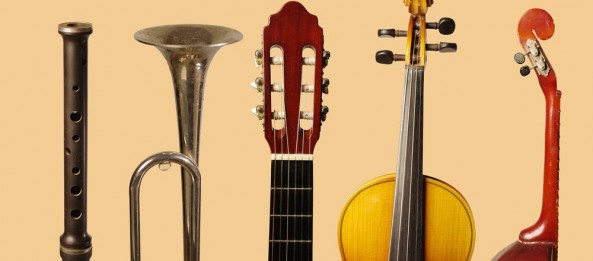As a member of the Newark Boys Chorus School, Marshall Alston developed an appreciation for music at a young age.
Those of us lucky enough to have picked up a musical instrument at one time or other have felt that mixture of wonder, excitement and bewilderment. Where to start? What to pluck, blow or press? It can bring great joy for people of all ages to start playing a music instrument. On top of this pure enjoyment, Marshall Alston has also found many benefits of playing a musical instrument for our health, happiness, professional careers, and daily lives.
To start with, there’s the musical effect on the brain. Many scholarly studies have shown that professional musicians have better connected brains! Part of the brain called the Corpus Callosum (the connector for the two halves of the brain) is often more developed in a musician. Typically, this part of the brain is responsible for complex coordination. Picture the drummer who keeps a different rhythm with each of his limbs. Or the child attempting to pat his head and rub his tummy at the same time! A sort of mental and physical multi-tasking. This activity can help improve memory and spatial awareness.
Learning to play an instrument can improve time management and task organization, two essential skills to Marshall Alston in his Human Resources career. Find time to practice on a regular basis. Working out regimes and specific exercises will create structure and improve your playing.
Dogged determination is key to making progress on your instrument playing skills. Patience and effort are rewarded over time. This is the salutary lesson for a quick fix culture. You don’t get something for nothing. Don’t expect to pick up a guitar on day one and start playing like Jimi Hendrix!
Two valuable lessons – responsibility and teamwork – are core elements for any musical journey. Responsibility for the care and upkeep of your instrument and for finding time to practice is important if you want to improve. If you join a band or orchestra you must work as part of a team and ensure that you contribute seamlessly to the whole. Developing these skills is also beneficial for the workplace, school, and other daily activities.
Music theory helps with mathematical thinking. Counting beats to bars, note values and time signatures, requires logical thinking. As does note choice when improvising over a chord progression or creating harmonies.
Whether we listen to folk, jazz, country or classical music, each has it’s own cultural foundation. The choice of a specific instrument may lead to a natural affinity with one style. A banjo is great for bluegrass and country music but not so useful for playing Mozart, Bach or Beethoven. Part of the fun for Marshall Alston and other music lovers is uncovering the stories and backgrounds behind different instruments.
Music requires active listening. Hearing and listening are not the same. Listening is active, hearing passive. To play a melody you need to listen to what you are playing. Are the notes sharp or flat? If you’re playing in a group you need to listen to the other musicians to stay in tune and on tempo. Listening is a fundamental life skill. A building block for successful relationships as well as professional careers.
But when it comes down to the basics, learning a musical instrument should be fun. It’s about losing yourself in another world, experiencing joy, creating and exploring emotions. The side-effects are all positive, besides maybe a blister or two. Release those endorphins, feel the stress fall away. You are in the moment, pure Zen.
Leave a Reply